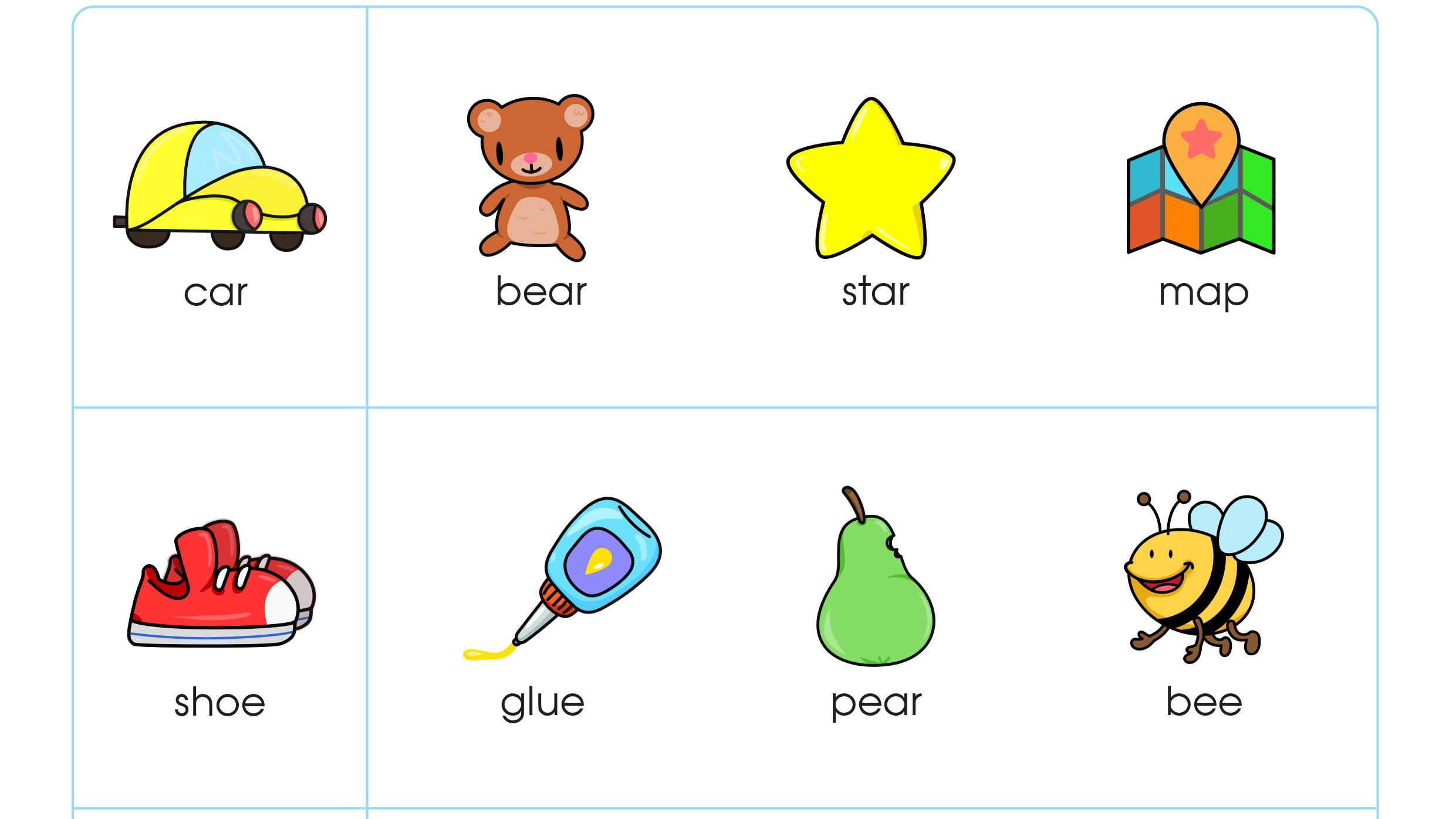Reading comprehension Normal Rhyming Words Worksheets for Ages 5-9
7 filtered results
-
From - To
Enhance your child's reading skills with our Reading Comprehension Normal Rhyming Words Worksheets designed for ages 5-9. These engaging worksheets foster early literacy skills by helping young learners identify and comprehend rhyming words. Through fun, interactive activities, children will boost their vocabulary, phonemic awareness, and understanding of word relationships, all while developing their reading fluency and comprehension. Perfect for home or classroom use, our expertly crafted worksheets support reading proficiency in a joyous and stimulating way. Give your child the foundation they need for lifelong reading success. Explore our collection today!
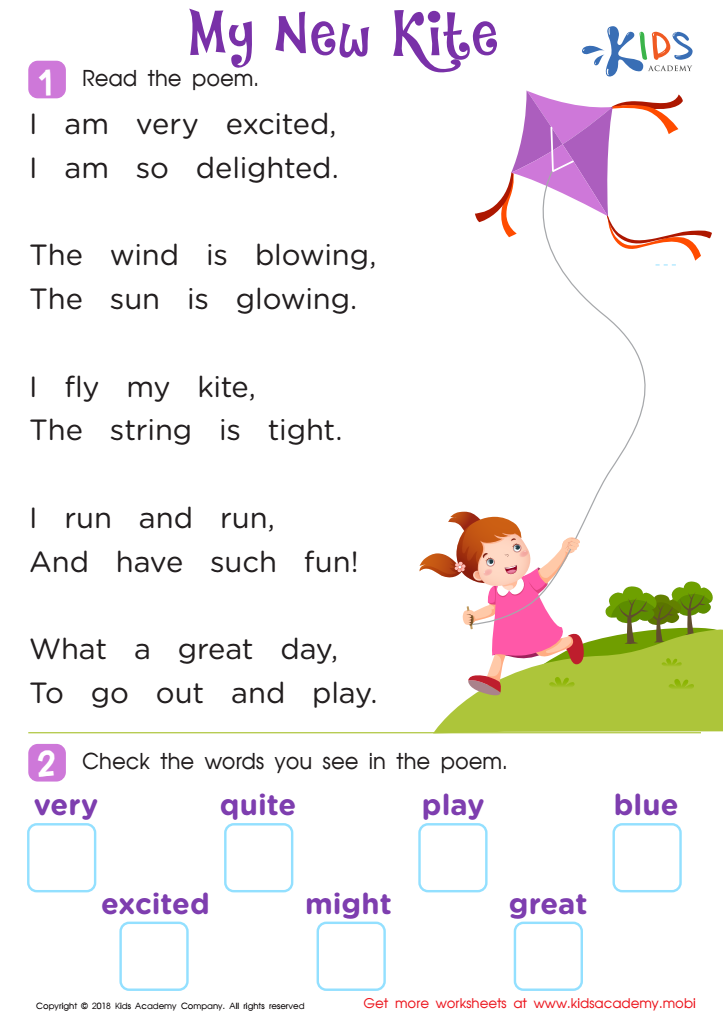

Poem: My New Kite Worksheet
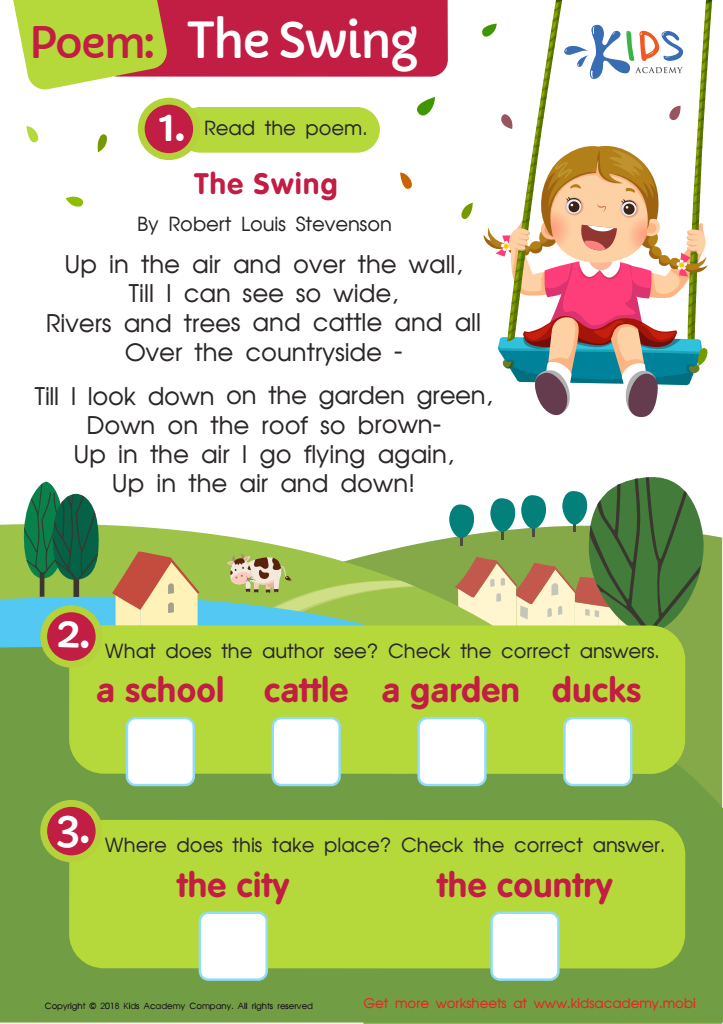

Poem: The Swing Worksheet


Rhyming Words Rhyming Worksheet


First Words: Picture Rhymes Worksheet
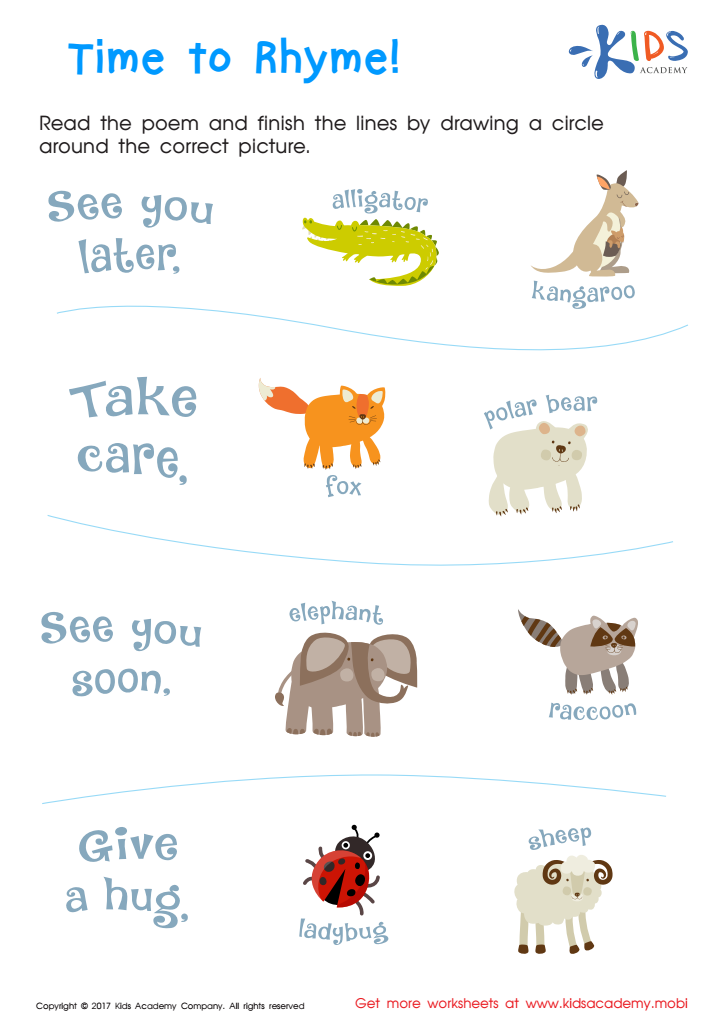

Time to Rhyme Rhyming Worksheet
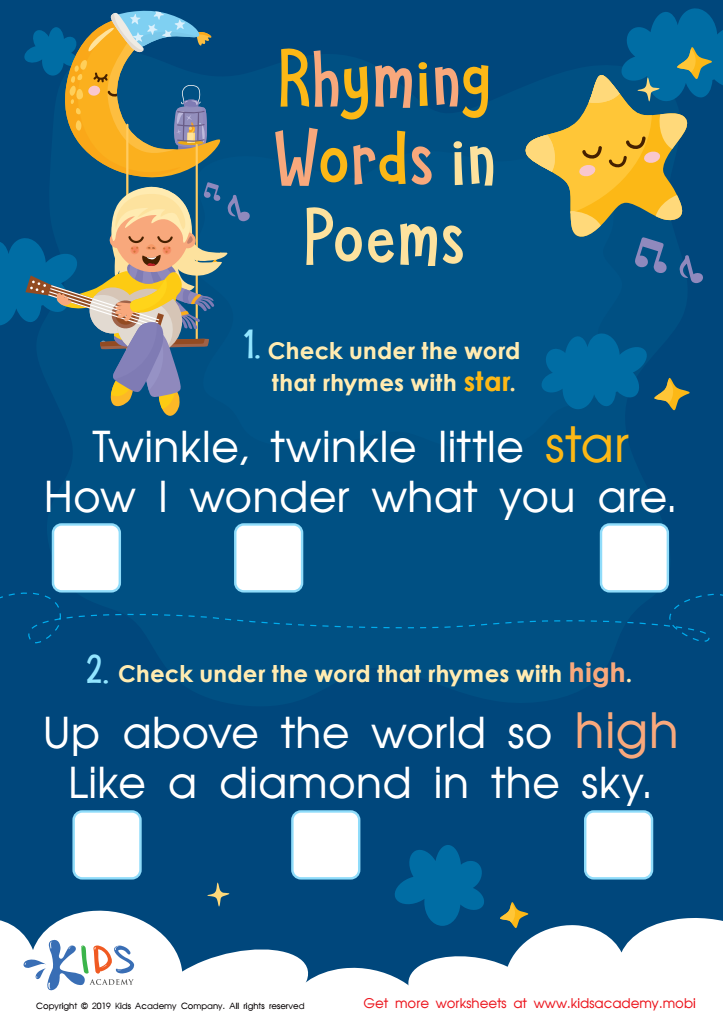

Rhyming Words in Poems Worksheet
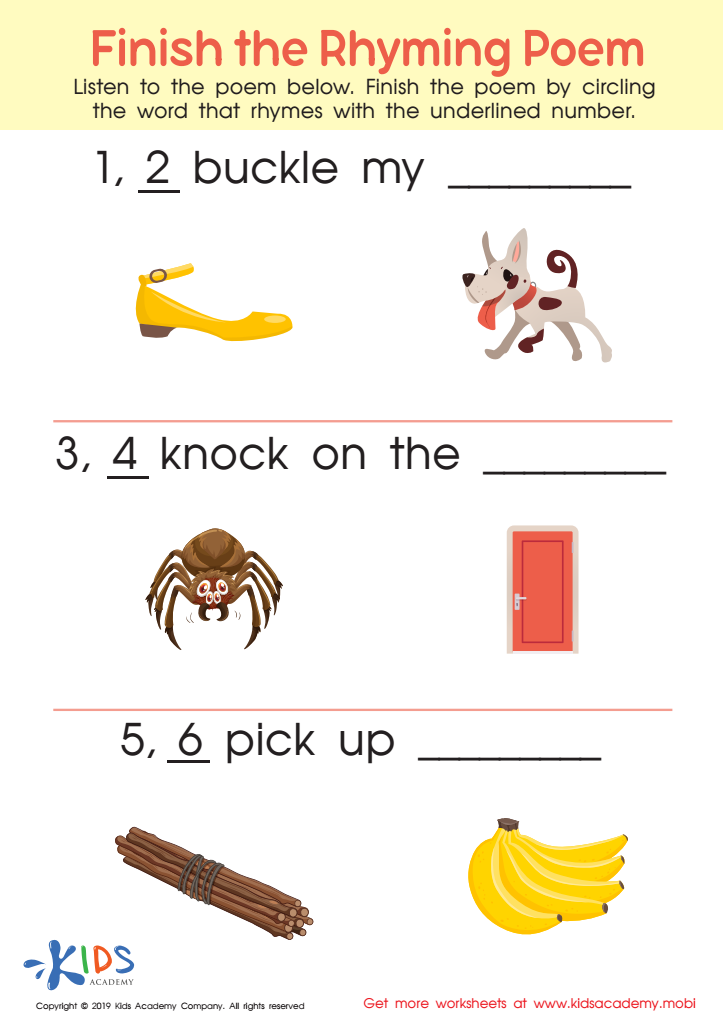

Finish Rhyming Poem Worksheet
Reading comprehension, particularly through normal rhyming words, plays a crucial role in early childhood development for ages 5-9. For parents and teachers, fostering this skill not only helps children become proficient readers but also enhances their broader cognitive abilities. Rhyming words contribute significantly to phonemic awareness, which is the ability to hear, identify, and manipulate sound patterns in spoken words. This foundational skill is essential for decoding words, a key component in learning to read fluently and with understanding.
Engagement with rhyming words also aids memory retention. The rhythmic and repetitive nature of rhyme helps children remember word structures and vocabulary more easily. It fosters a fun and interactive learning atmosphere, making children more enthusiastic about reading. Additionally, familiarity with rhymes combines auditory learning with visual cues, which caters to diverse learning styles.
Understanding meanings in stories and verses allows for deeper comprehension, not just of words but of narrative structures and emotions. It encourages critical thinking and enhances linguistic creativity, enabling children to think about language playfully and imaginatively.
By caring about reading comprehension and emphasizing rhyming words, parents and teachers lay a strong literacy foundation. This, in turn, enables children to succeed across academic subjects and nurtures lifelong communication skills.
 Assign to My Students
Assign to My Students






